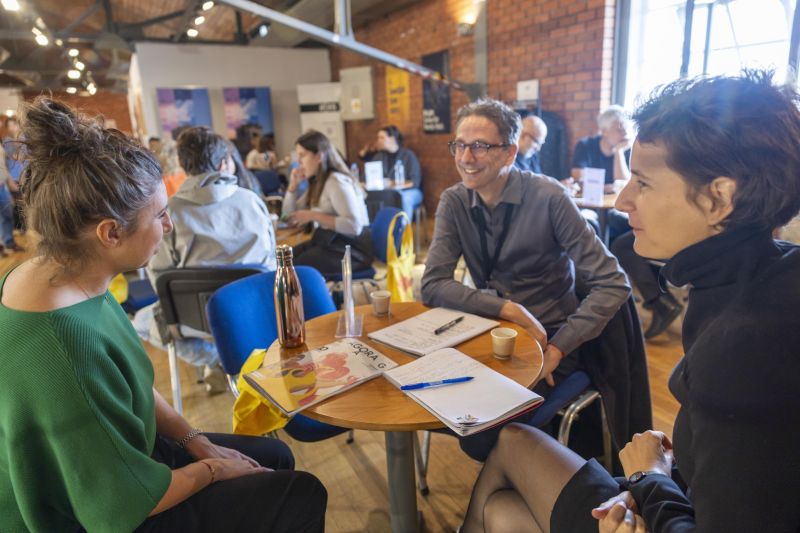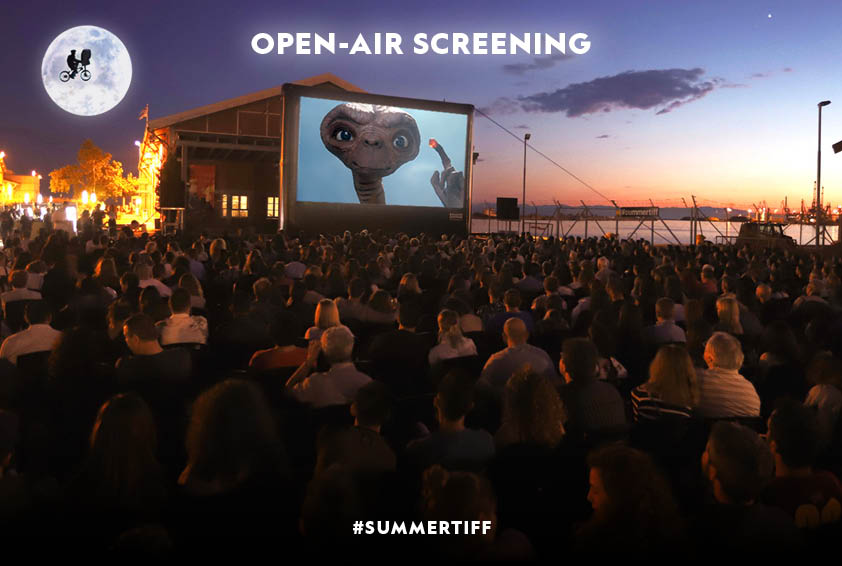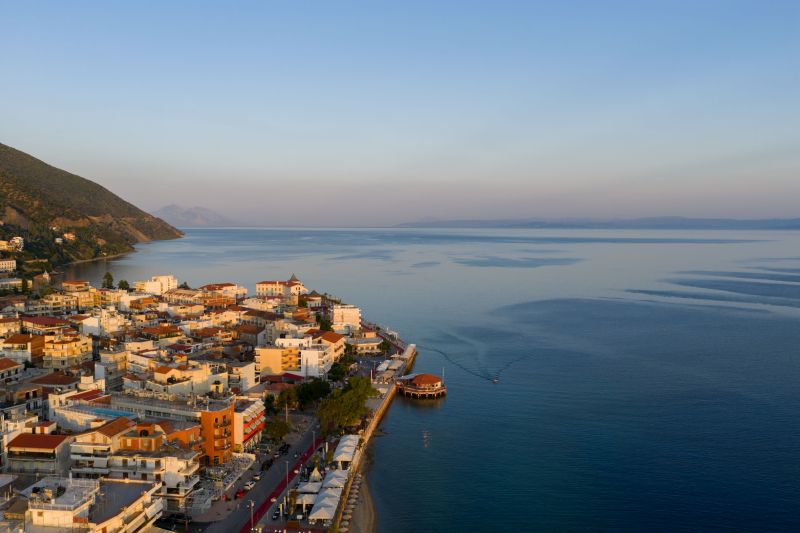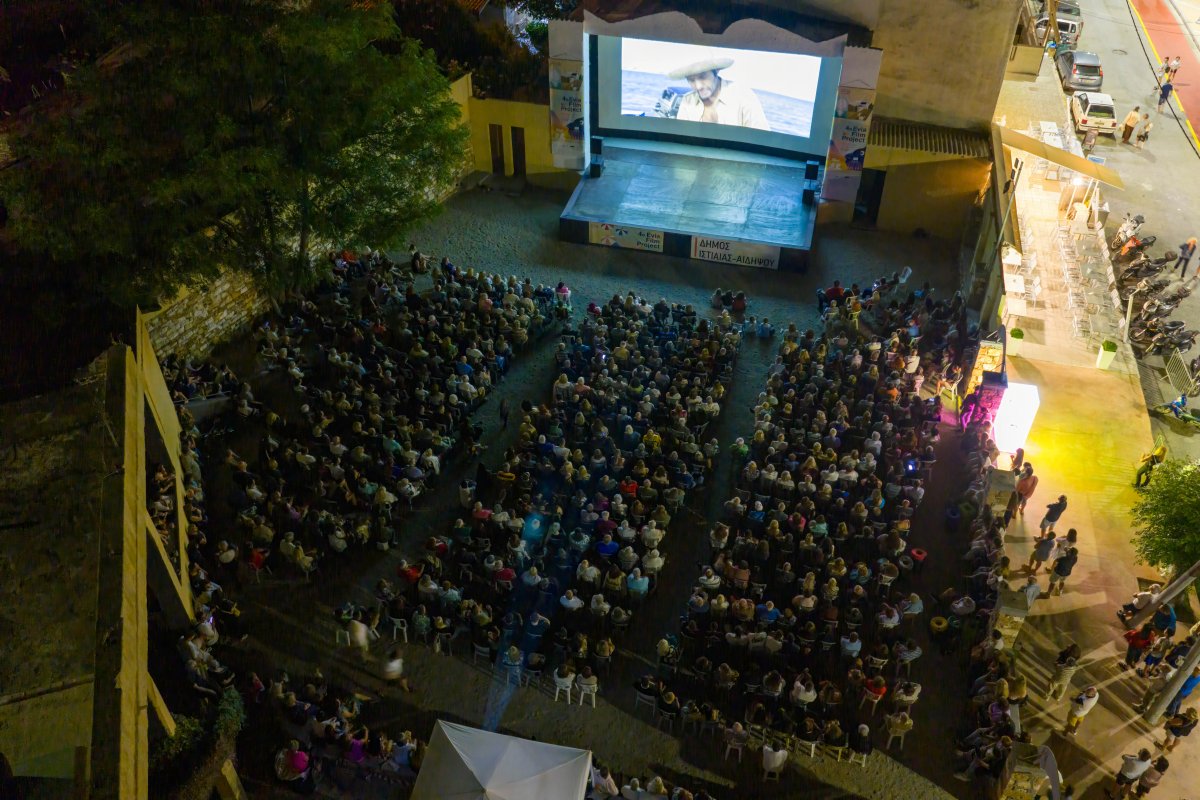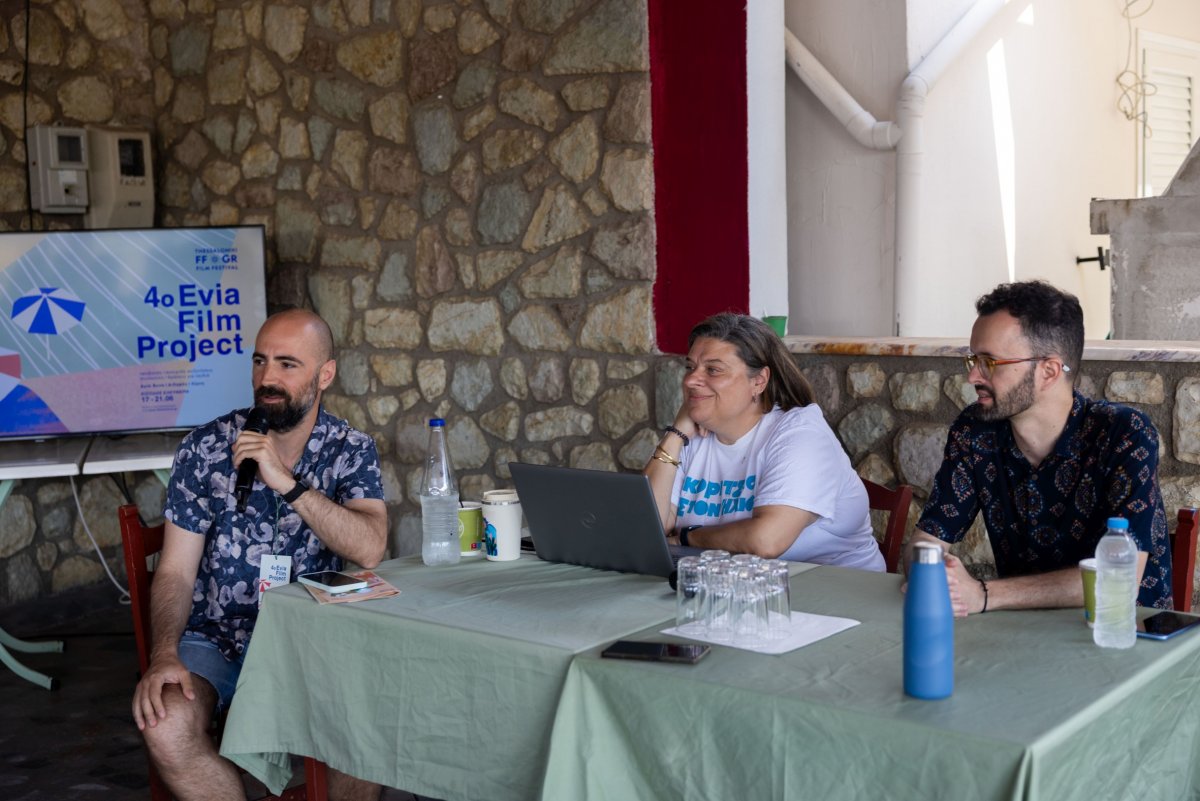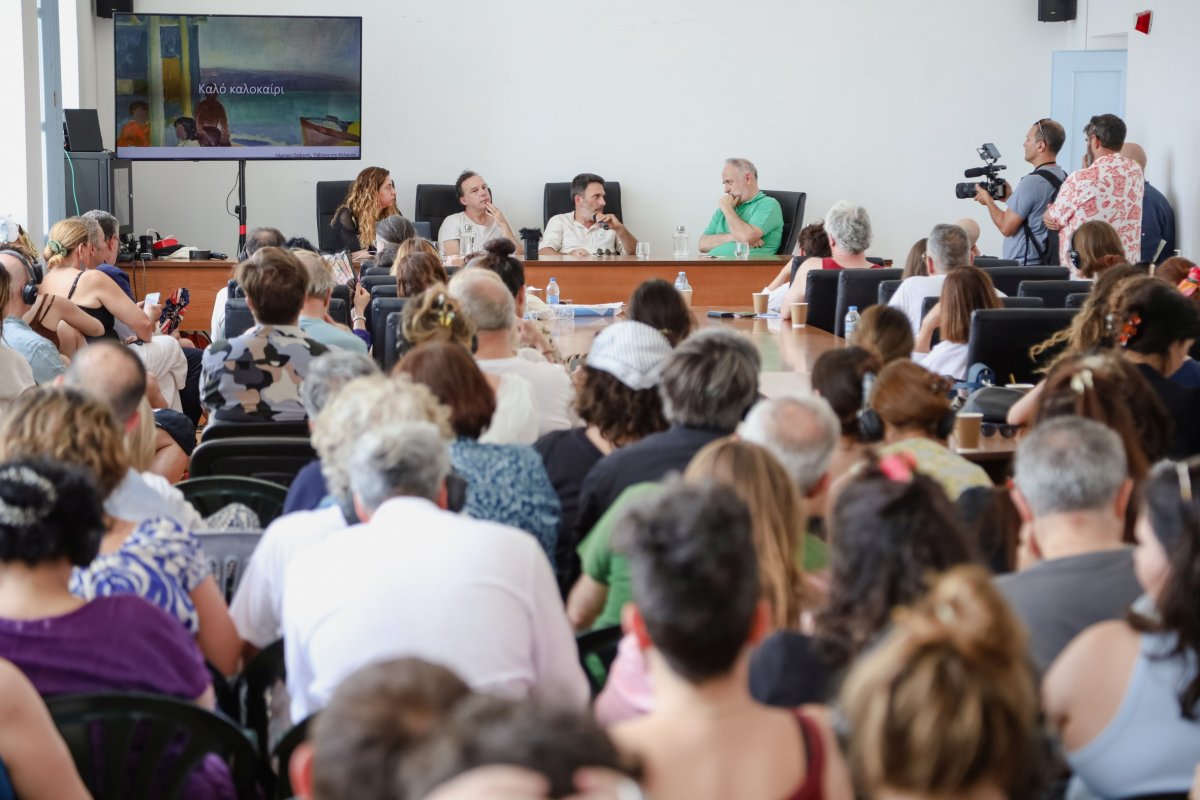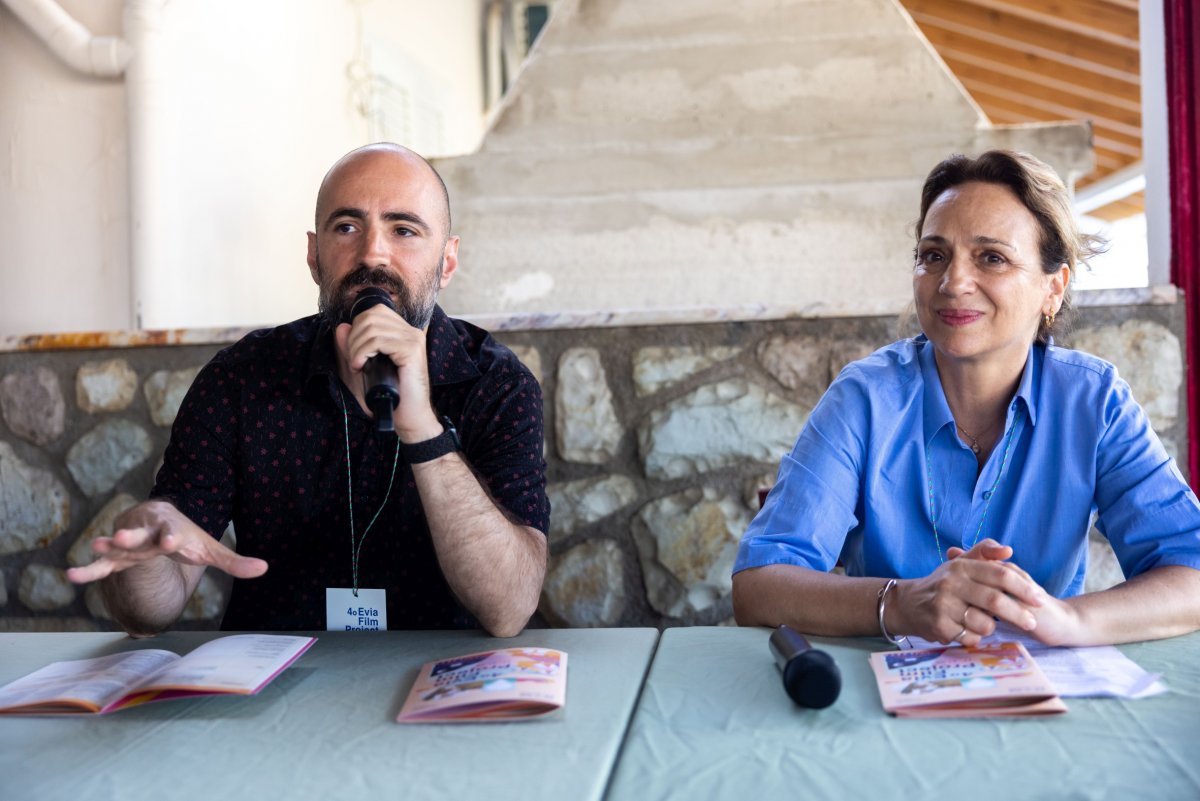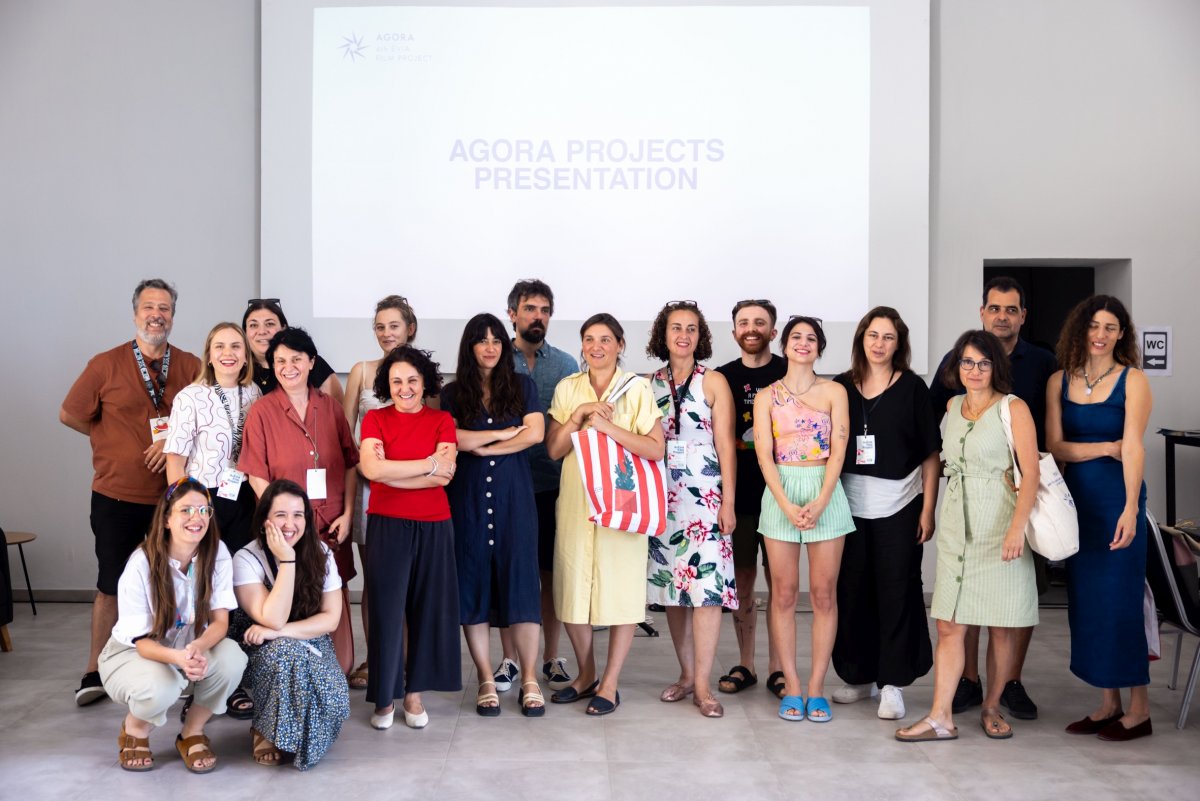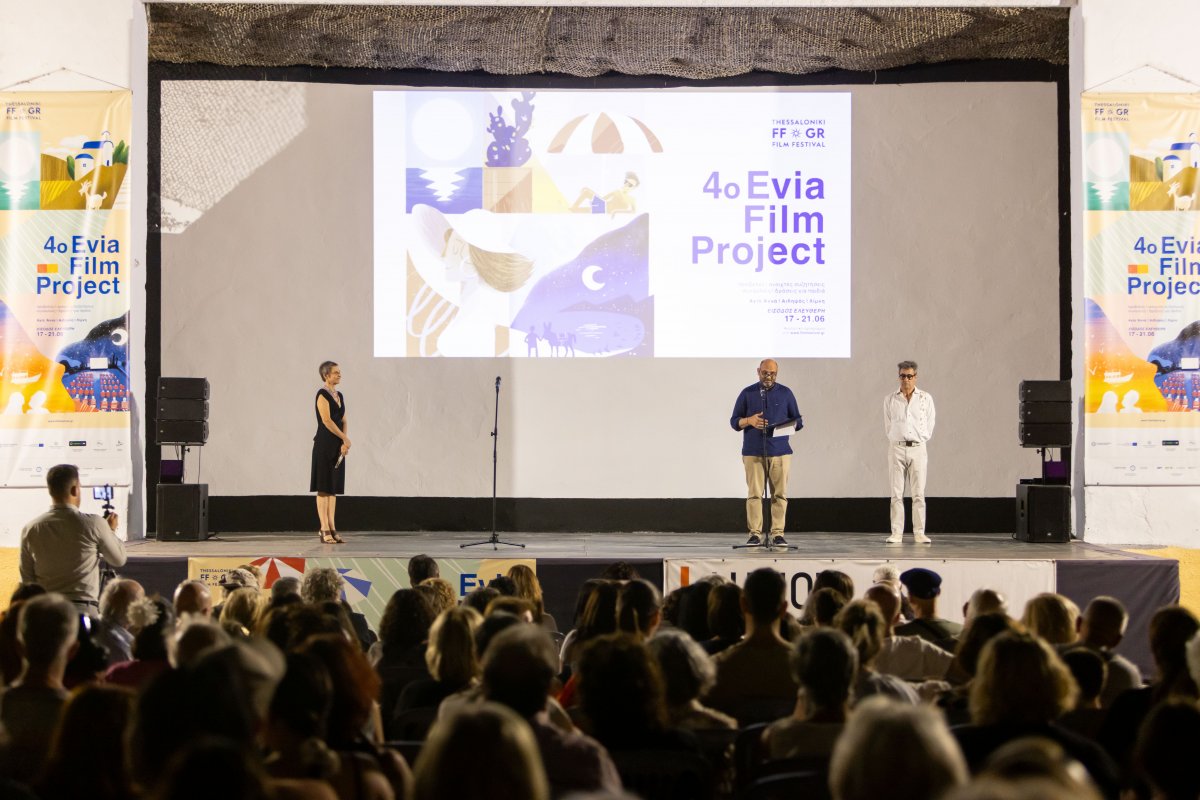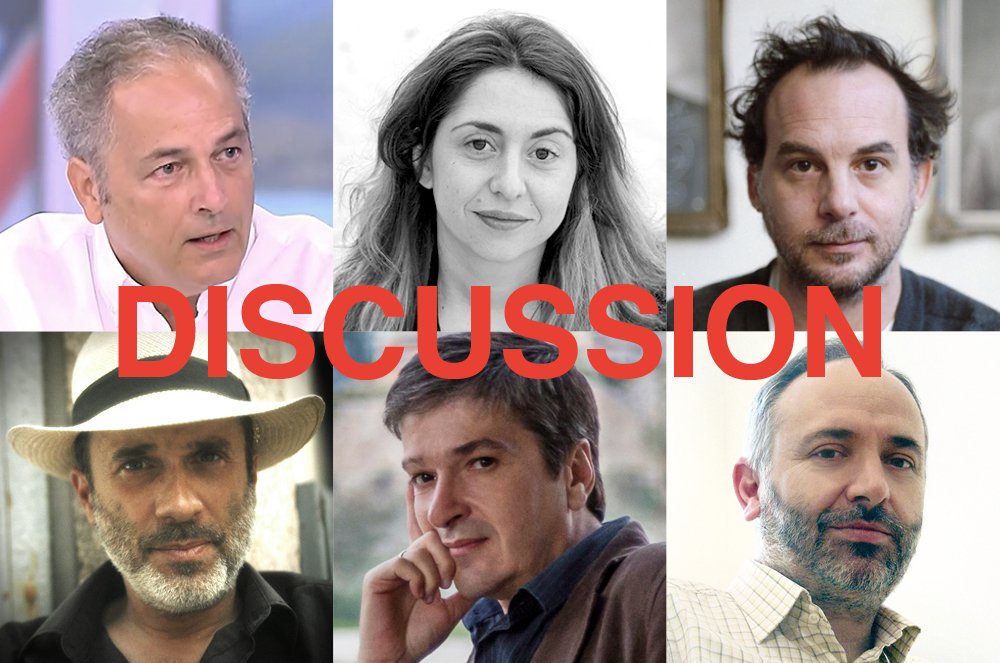Images of the 21st Century
14-23 March 2014
PRESS CONFERENCE
The Naked Room / American Commune / Brasslands
Directors Adam Pogoff and Bryan Chang (Brasslands), Nadine Mundo (American Commune) and Nuria Ibanez (The Naked Room) gave a press conference on Tuesday, 18 March 2014, in the context of the 16th Thessaloniki Documentary Festival.
Adam Pogoff and Bryan Chang, two of the members of the “Meerkat Media” collective which made the documentary, talked about Brasslands, which follows a New York brass band, as they join half a million fans who flock to the Serbian village of Guca to attend the world’s largest trumpet competition. “None of us had any ties to Serbia. We were only interested in music, and in the fact that so many bands from such diverse cultural backgrounds join in this thriving Balkan music community,” Chang explained. For Pogoff, the most important thing is that “musicians and the audience are on the same level, creating a truly festive atmosphere.” One of the protagonists is Dejan Petrovic, “the festival’ s biggest star, a third or fourth generation trombone player, one of those kids born with a trumpet in their hand,” said Chang. During the two-and-a-half year shoot, the US film collective collaborated with five co-directors in Serbia and a number of local film crews.
American Commune, directed by sisters Rena Mundo Croshere and Nadine Mundo, takes the audience on a journey to a place in rural Tennessee where 1,500 hippies, led by their guru Steven Gaskin, founded a commune in 1970. The members of the commune gave up their savings, cultivated their own food and created a self-sufficient society. Nadine and Rena grew up in the “Farm”, as the commune was known, but left in 1985. They returned for the fist time for the purposes of their film. Nadine Mundo explained: “First of all, we found an abundance of archival material, both from big networks like the BBC, that had reported extensively on the commune in the 1970s, and film material collected by the commune’ s own film crew. Making this film was a personal revelation for me as well as for my sister. Having left the Farm at the age of 10, we decided in our adolescence to keep our communal past a secret, because the hippie culture was frowned upon in the ‘80s. By returning to the commune, we essentially rediscovered our own childhood, and were able to understand the people who live there according to their own set of ideals. We also had to address several questions related to life in a commune, such as: ‘Can you live in a place where everything is communal?’ ‘Can you deal with the loss of individuality?’ We raise those questions and let the audience give their own answers”.
A closed room is the stage in Nuria Ibanez's documentary The Naked Room. In this room, part of a children’s hospital in Mexico City, children with psychological problems are being given council. The director got special permission from the Mexican Health Ministry to shoot there, and she was surprised by the reception she received at the hospital: the children did nothing to avoid the film crew. “We realized the children wanted to talk on camera, even about things that are considered to be taboo. I and the two other members of the crew were always present in the sessions, but we ony listened and filmed, without ever intervening. Eventually, the children felt at ease, and talked as if the camera wasn’t there,” said Ibanez. She added that filming was hard, as was the editing “since we had collected a vast amount of material, having filmed more than 130 sessions. We had a hard time deciding what to keep and what to leave out. The entire filmmaking process was painful. In the end, hearing the story of those children, who were looking for someone to talk to, makes the viewer relate to them, while it also allows the audience to get to know Mexico City itself and learn a lot about the social conditions there.”



